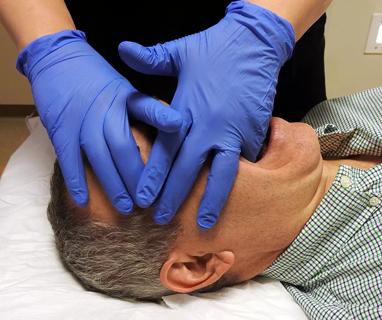A conversation about empathy and more with Bud Isaccson, MD

When Bud Isaacson, MD, decided to practice at Cleveland Clinic, its physician-led model was the main attraction. That was in 1993 and he says it remains one of the institution’s great strengths.
Advertisement
Cleveland Clinic is a non-profit academic medical center. Advertising on our site helps support our mission. We do not endorse non-Cleveland Clinic products or services. Policy
“In recent years, we have become much better at working as a team of caregivers,” he says. “As healthcare continues to evolve, I can think of no better place to work.” Here, Consult QD asks him how he remains excited and optimistic about the practice of internal medicine.
Q: What keeps you excited about the future of healthcare?
A: Despite the challenges in healthcare today, I am excited about the opportunities to deliver more holistic care. As a general internist I have started working with a team of other providers as part of our population health initiative and can see the potential of this approach to improve the health of our patients.
Q: Tell us a bit about your work with substance use disorders?
A: I was fortunate to be part of a faculty development grant several years ago to teach faculty about substance use disorders in order to disseminate information and skills to other faculty and students. My focus in this area has been to help primary care physicians, students and residents better understand substance use disorders and manage the less severe forms in their practice.
Q: What do you wish others knew when working with patients dealing with substance abuse?
A: Patients with these problems are suffering and often have low self-esteem. Providing empathy is the first step in helping them recognize they are not alone and that help is available. Additionally, patients with milder disorders often improve with supportive counseling from their primary care provider without the need for specialized care.
Advertisement
Q: How you decompress from work?
A: Running outside. The fresh air allows me to clear my head. I also find I often come up with ideas or solutions to problems during a run.
Q: Advice you would give to your 20-year-old self?
A: View mistakes and failures as learning opportunities.
Advertisement
Advertisement

Emerging evidence suggests a patient-specific approach

Not if they meet at least one criterion for presumptive evidence of immunity

Essential prescribing tips for patients with sulfonamide allergies

Confounding symptoms and a complex medical history prove diagnostically challenging

An updated review of risk factors, management and treatment considerations

OMT may be right for some with Graves’ eye disease

Perserverance may depend on several specifics, including medication type, insurance coverage and medium-term weight loss

Abstinence from combustibles, dependence on vaping